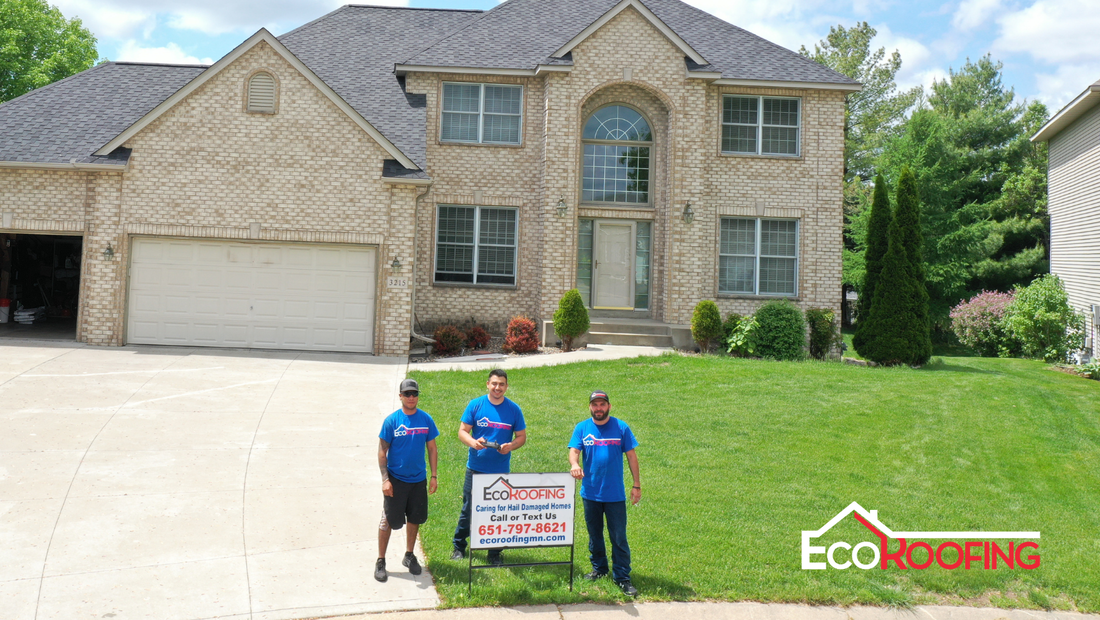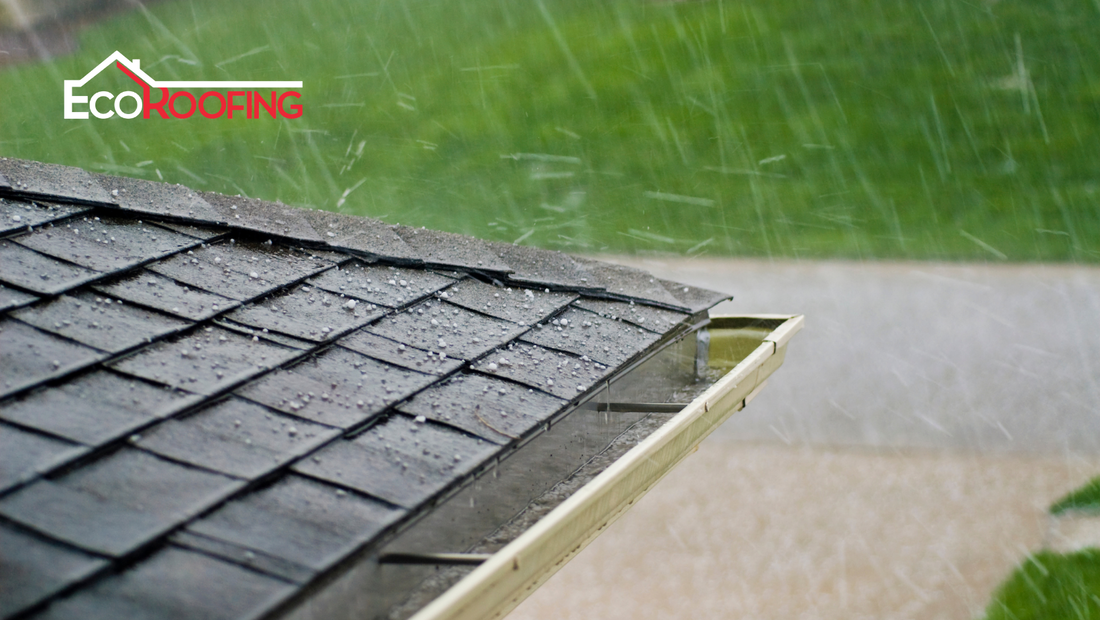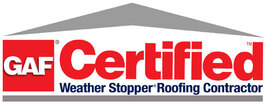|
When it comes to installing a new roof, the decision between hiring a professional roofing contractor or undertaking a do-it-yourself (DIY) approach is an important consideration. While some homeowners may be tempted to tackle the project themselves, there are several key factors to consider. In this blog post, we'll explore the advantages of hiring a professional roofing contractor, emphasizing the expertise and benefits that Ecoroofing, a trusted company in the Twin Cities, can provide.
0 Comments
A properly installed roof is essential for the protection and longevity of your home. Unfortunately, a poorly installed roof can lead to various issues and costly repairs down the line. In this blog post, we'll highlight the signs of a poorly installed roof, helping you identify potential problems and take necessary action in the Twin Cities.
Recognizing the signs of a poorly installed roof is essential for addressing potential issues and preventing further damage. Uneven or sagging sections, misaligned shingles or tiles, excessive or inadequate nailing, improper flashing installation, inadequate ventilation, poorly sealed roofing components, and leaks or water damage are all signs to be vigilant about. If you notice any of these signs, it's recommended to consult with a professional roofing contractor, like Ecoroofing, for a thorough inspection and necessary repairs. Remember, investing in a properly installed roof ensures the long-term protection and value of your home in the Twin Cities.
Simplifying the Insurance Claim Process for Roof Damage: Choose Ecoroofing for Expert Assistance10/4/2023 When filing an insurance claim for roof damage, it's crucial to have a reliable and knowledgeable partner by your side. Ecoroofing, a trusted roofing contractor in the Twin Cities, offers comprehensive services to simplify the insurance claim process. In this blog post, we'll guide you through the necessary steps and explain how Ecoroofing can assist you every step of the way.
When it comes to filing an insurance claim for roof damage, choosing Ecoroofing as your trusted partner will simplify the entire process. With their expertise and comprehensive services, including a free inspection, assistance with insurance contact, detailed documentation of pictures, attendance at the insurance adjustment, and guidance with color selection, Ecoroofing ensures that you receive the support you need. Contact Ecoroofing today to experience their exceptional service and expertise in handling insurance claims for roof damage. Trust them to be your reliable partner throughout the insurance claim process in the Twin Cities. Severe storms can pose a significant risk to your roof, especially in the Twin Cities where weather conditions can be unpredictable. Taking proactive measures to prevent roof damage during storms is essential to safeguard your home. In this blog post, we'll provide valuable tips to help you protect your roof during severe storms in the Twin Cities. Regular Roof Inspections: Schedule regular roof inspections by a professional roofing contractor, such as Ecoroofing, to assess the condition of your roof. Regular inspections can identify any existing vulnerabilities or areas that may require maintenance or repairs. Addressing these issues promptly can help prevent them from escalating during a severe storm. Trim Overhanging Branches: Overhanging tree branches pose a risk of falling onto your roof during storms, potentially causing significant damage. Trim any branches that are in close proximity to your roof to minimize this risk. If you are unsure about the safety or proper technique for tree trimming, consult a professional arborist. Reinforce Loose or Damaged Shingles: Inspect your roof for loose or damaged shingles and address them promptly. Secure any loose shingles with roofing adhesive or replace damaged shingles to ensure they are firmly in place. Loose or missing shingles can be easily dislodged by strong winds, leading to water infiltration and further roof damage. Reinforce Flashing and Sealants: Flashing and sealants play a crucial role in keeping your roof watertight. Inspect the flashing around chimneys, vents, skylights, and other roof penetrations. Ensure they are securely fastened and properly sealed. Reapply sealants as needed to maintain their effectiveness in preventing water intrusion. Clean Gutters and Downspouts: Clogged gutters and downspouts can lead to water backup, which can overflow onto your roof during heavy rainstorms. Regularly clean your gutters and downspouts to ensure they are free from debris and allow for proper water drainage. Consider installing gutter guards to prevent debris buildup and reduce the risk of clogging. Secure Loose Roofing Materials: Inspect your roof for any loose or vulnerable roofing materials, such as flashing, vents, or skylights. Ensure they are securely fastened to prevent them from becoming dislodged by strong winds. Consider reinforcing them with additional fasteners or contacting a professional roofing contractor for proper repairs or replacements. Reinforce Roof Trusses and Bracing: If your area is prone to severe storms, reinforcing your roof trusses and bracing can provide added structural integrity. Consult with a professional roofing contractor or structural engineer to assess your roof's stability and recommend any necessary reinforcements. Consider Impact-Resistant Roofing Materials: Consider upgrading to impact-resistant roofing materials for added protection against hail or flying debris during severe storms. Impact-resistant shingles or metal roofing options are designed to withstand the impact of hail and may provide greater durability against severe weather conditions. Review Insurance Coverage: Review your homeowner's insurance policy to ensure it provides adequate coverage for storm-related damages. Understand the extent of coverage for roof repairs or replacements in the event of severe storm damage. If necessary, consider adding or adjusting your coverage to provide greater protection for your roof. Protecting your roof during severe storms in the Twin Cities requires proactive measures and regular maintenance. Conducting inspections, reinforcing loose or damaged elements, trimming overhanging branches, cleaning gutters, and considering impact-resistant materials are all crucial steps to minimize the risk of roof damage. Consult with a professional roofing contractor, such as Ecoroofing, for expert guidance and to ensure the structural integrity of your roof during severe storms. By implementing these preventive measures, you can help safeguard your roof and protect your home from the potential hazards of severe weather.
|
OUR COMPANYMN LIC#CR681753 |
SERVICES |
SOCIAL |
The following Trademarks: Owens Corning™, SureNail® Technology, Duration®, Duration STORM® Triple Layer Protection®, WeatherGuard®, TruBond® & TruDefinition® are all registered Trademarks of Owens Corning® http://www.owenscorning.com/.
2024 All Rights Reserved. EcoRoofing MN, Residential Roofing Company
2885 Country Drive Suite 110 Saint Paul, MN 55117 | (651) 797.8621
2885 Country Drive Suite 110 Saint Paul, MN 55117 | (651) 797.8621


 RSS Feed
RSS Feed






